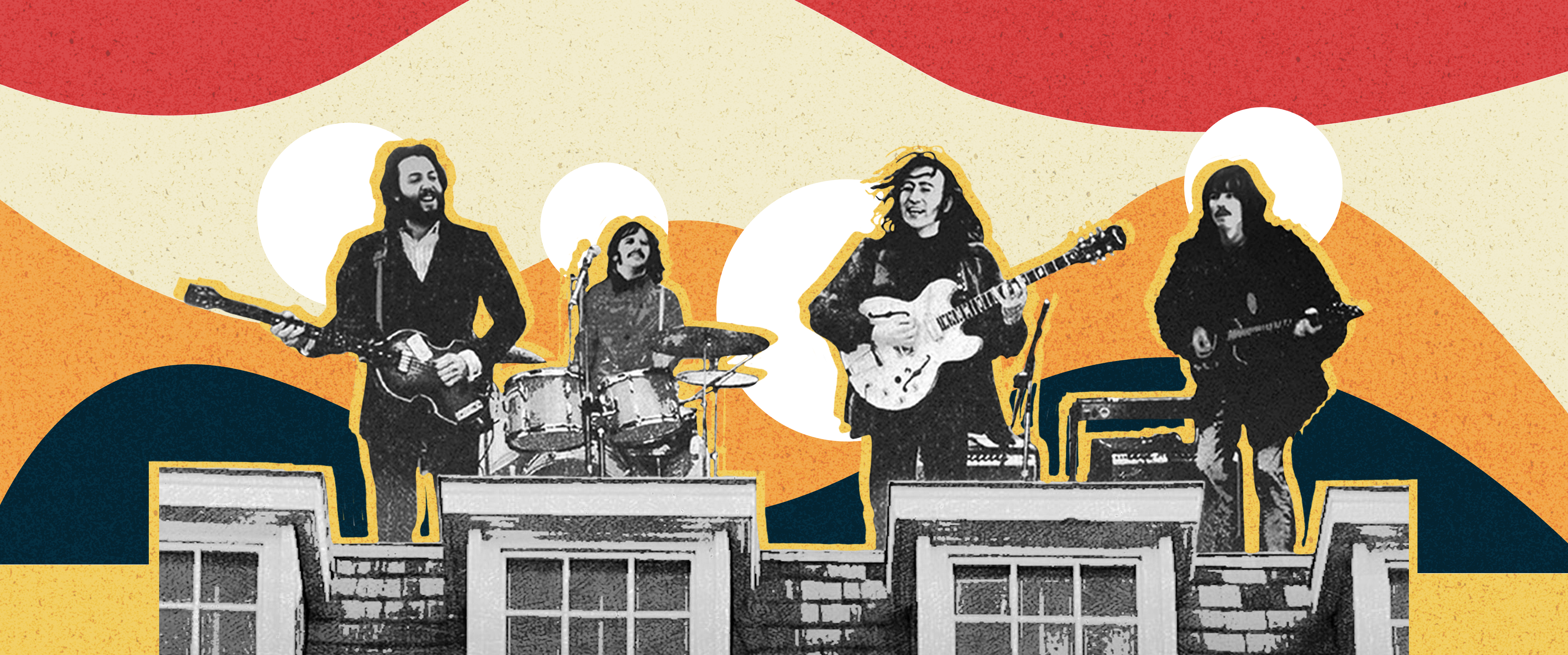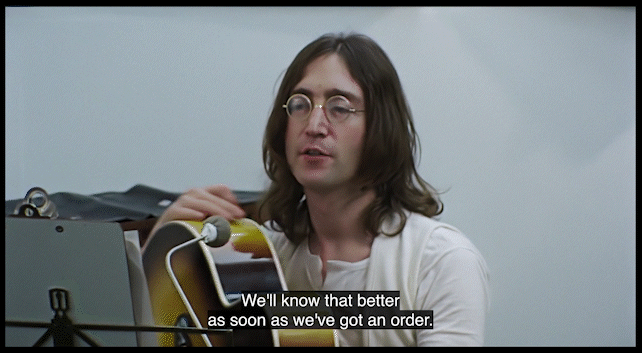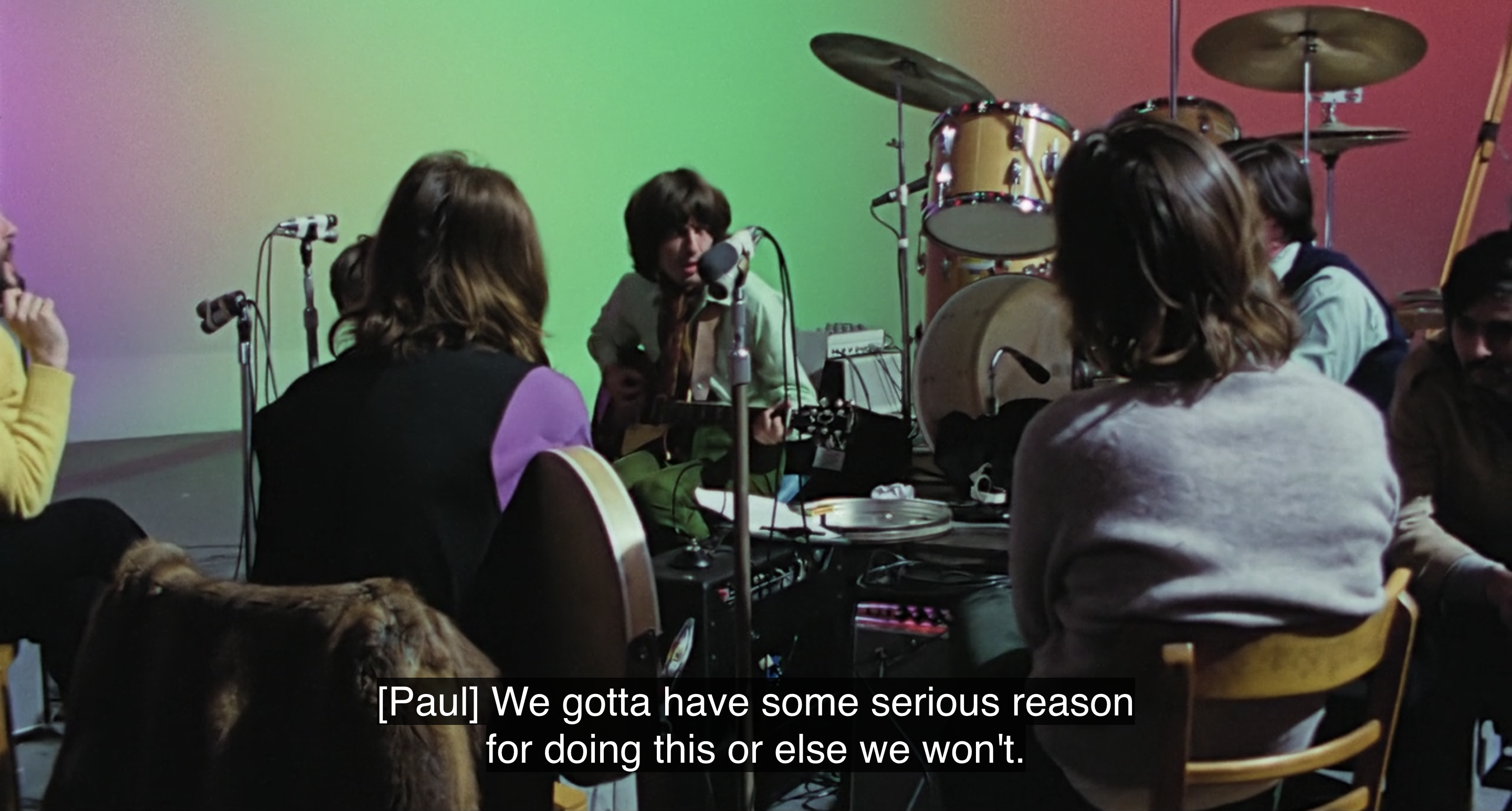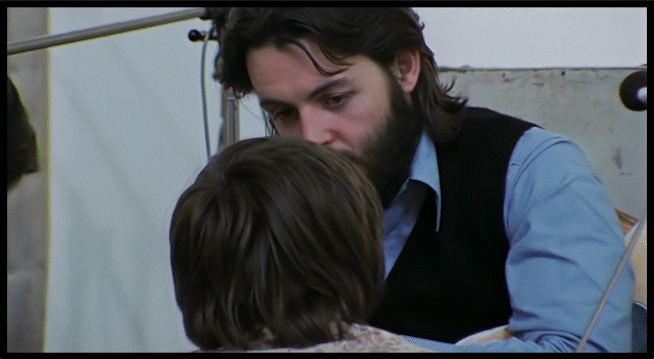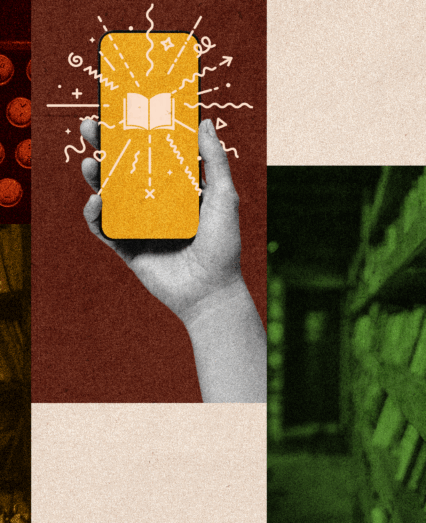Over the Thanksgiving weekend, the most casual to the most devoted fans of the Beatles were given an incredible gift: Get Back, a brand-new, three-part series documenting the making of the group’s final album, Let It Be.
Directed by Peter Jackson and streaming on Disney+, the series comes from nearly 60 hours of footage originally captured for the 1970 Let It Be documentary, which Jackson and his team impressively restored to near-modern quality.
The recording of Let It Be (also referred to as the “Get Back sessions”) has long been steeped in a deep lore that has mythologized the process as one full of tension and acrimony. What this new docu-series offers is a very different telling of the story — one that still has its moments of drama, but ultimately is full of joy, boundless creativity, and the type of camaraderie that only four lads from Liverpool who changed the world forever can really understand.
The Beatles are as central to my existence as oxygen or coffee, and watching Get Back was an emotional experience filled with both deep admiration of their brilliance and the underlying melancholy of knowing that magic will never exist again. At some points, absorbing all of this previously unseen footage felt like a fever dream or an uncanny valley in which the producers had managed to find four impossibly good impersonators.
Despite the novelty of this new material, I found myself struck by how familiar it felt — but not because I know the songs like the back of my hand or because I’ve spent a lifetime consuming media about the Beatles. Instead, I realized that what was resonating with me more than anything else was a deep recognition of the challenges and joys of the creative process.
Consider these photos from my pilgrimage to Liverpool my cover letter to prove my Beatles cred.
The photo on the left is me recreating a famous photo of John Lennon outside his childhood home (middle).
The premise of Get Back is this: It’s early 1969, and the Beatles have embarked on an ambitious project to document the recording of their next album as a television special that will lead into their first live performance since retiring from touring in 1966. Their original timeline for this endeavor is only a little more than two weeks, putting immense pressure on themselves to deliver something remarkable.
Essentially, they’ve promised a spectacular end result by a very-near deadline, but they’re struggling to generate the actual material. And is that not the creative process in a nutshell?
I work at a creative agency, where our work is a continual process of selling an outcome, establishing an always-too-soon deadline, and then working backward to figure out what we’re actually going to do. We dazzle clients with an idea and set high expectations for ourselves, and then we hunker down in a pool of pressure to determine how we’re going to execute it.
For me and my teammates, that’s usually a series of brainstorms and planning sessions where we throw around ideas and debate strategies. For the Beatles, it’s two weeks of sitting in a circle on a soundstage (and later a studio) testing out different melodies and lyrics to see what sticks.
Gif via Apple Corps / Disney+
There’s a moment in Part II where, in the midst of a discussion about how to move forward with the project, John Lennon says, “We’ll know [what to do] better as soon as we’ve got an order. Soon as we’ve got a story.” I paused the TV to process that for a moment, thinking about the number of times I’ve heard that exact sentiment in a conference room or Zoom call when brainstorming with a team.
“These are all good ideas, but they don’t tell a story.”
“Okay, but what’s the story?”
“What story are we telling with this material?”
For the Beatles, a group of songs was just material, but an album was a story. For creatives, a series of graphics is just content, whereas a campaign is a story.
At one point early in the process, Paul McCartney gets frustrated at the group’s tendency to focus their attention on the little details of songs (harmonies, solos, etc.) when there is still so much foundational work to do. He argues that since they are on such a tight deadline, they need to focus on the structure and system — the story, if you will — before they spend time deliberating those details. His frustration is palpable, especially as he increasingly feels like the others don’t understand his argument, and it resonated with me deeply.
How many times have my coworkers and I been in the middle of a brainstorm or ideation session where we’ve gotten so caught up in micro-details — Facebook vs. Instagram, blue vs. purple — before we’ve even worked out the central message of our project? It happens all the time, and it can be wildly frustrating, whether you catch yourself or your counterparts doing it.
As the days stretch on, the Beatles and their inner circle continually arrive back at the topic of this live show they intend to perform. They often begin discussing the technical details (will it be small and local or huge and in Africa?) but ultimately end up deliberating whether or not they should do it at all. “We gotta have some serious reason for doing this, or else we won’t,” Paul says.
Screenshot via Apple Corps / Disney+
Their deliberations about this show are laced with an underlying insecurity that weighs heavy on the group, and each time that they get close to narrowing in on a specific direction, nobody is willing to commit. (George Harrison’s brief departure from the band during this time adds another complicated variable to the decision of how to proceed.)
This hesitance to move forward without full confidence, while reckoning with an impending deadline and the undeniable truth that you have to do something, can be suffocating. Watching these conversations made me recall meetings where plenty of viable ideas, each with strengths and weaknesses, were thrown around, but nothing was enough to generate that spark in someone’s eyes that means you’re on to something. Ideally, we would take the time we need to incubate something truly special. But with a self-imposed deadline and external pressure — whether it’s from a client or millions of fans — you don’t have that luxury.
Toward the end of Part II, we see an audio-less conversation in which recording engineer Glyn Johns pitches to Paul the idea of playing the show on the studio’s roof. Not only is the depiction of this moment a master class in effective storytelling — we don’t hear their words, but we see Paul’s face light up as he hears the idea for the first time — but it also reflects those special, magic-in-a-bottle breakthroughs where the scattered pieces fall into place and a sense of clarity appears from the murkiness. Those are the moments that make the tribulations of the creative process worth it, whether the outcome is the perfect line of copy for an advertising campaign or a legendary musical performance that still holds a tight grip on pop culture five decades later.
Gif via Apple Corps / Disney+
I suppose that I shouldn’t be shocked that Get Back offers such an interesting microcosmic view into the creative process. After all, it’s a documentary about how four highly creative and visionary people operate — something that fans have never had a chance to observe until now.
But beyond that, Get Back is a powerful reminder of the essentiality of joy in creative work. In retrospect, it’s silly that us superfans spent so many years believing that the making of Let It Be was a miserable process, considering the output. (If that album is what you get when you put four people who hate each other in a recording studio, other bands should have reevaluated their strategies long ago and filled their ranks with enemies instead of friends.)
There are tense moments, and there is a lingering sense that the four Beatles are not as closely aligned as they used to be, with each beginning to understand their independent creative paths as artists. As a viewer, you’re acutely aware of the challenges John and Paul are working through, both as co-songwriters and as friends, but despite that, they’re visibly as tuned into each other as two people can be, making each other laugh with funny voices, singing their older songs, and giggling at jokes nobody else understands.
To me, it’s proof that humor and joy are the most crucial ingredients for good creative work. The ability to laugh and find moments of delight in the process results in better relationships with your collaborators, a better product, and a better sense of personal fulfillment.
Get Back reminds us that the creative process is impossible to master. If the Beatles struggled with it, so will the rest of us — but the struggle is what marks it worth it in the end.
